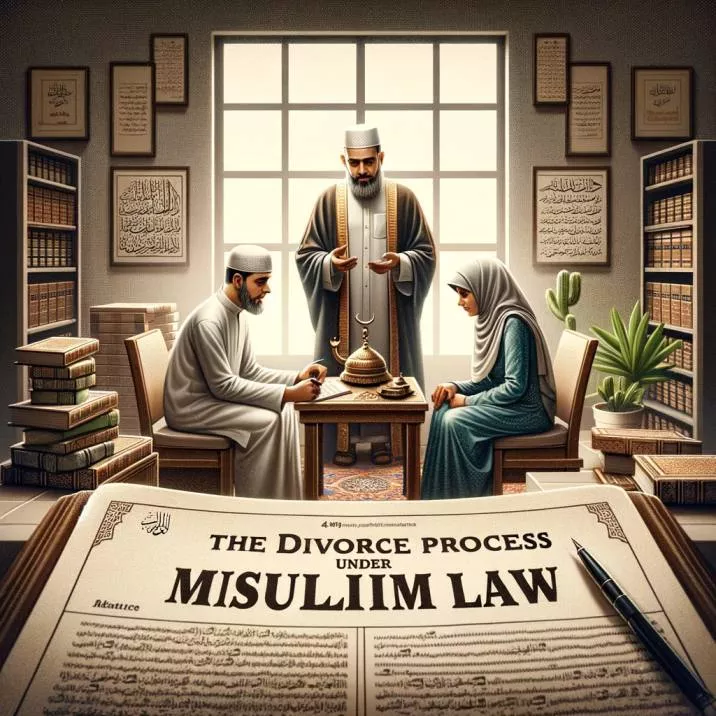In this article we have explained about Divorce For Christian
Introduction to Christian Divorce Laws in India
Divorce among Christians in India is governed by specific laws that cater to the matrimonial issues within the community. The Indian legal system, recognizing the diversity of its citizens, has provisions that allow Christians to seek divorce under the Indian Divorce Act, 1869, and its subsequent amendments. This article provides a comprehensive overview of the legal framework surrounding Christian divorces in India, including grounds for divorce, the process, and key considerations.
Divorce For Christians in India: Understanding the Legal Framework
Grounds for Divorce for Christians in India
Adultery
Under the Indian Divorce Act, adultery remains one of the primary grounds on which a Christian can file for divorce. The aggrieved party must prove that their spouse has engaged in sexual relations outside the marriage.
Conversion to Another Religion
Conversion of a spouse to another religion, without the consent of the other, is a valid ground for divorce, as it is considered a violation of the matrimonial bond.
Cruelty
Physical or mental cruelty, which makes it impossible for the spouses to live together, can also be cited as a reason for seeking divorce.
Desertion
If a spouse has deserted the other for a continuous period of not less than two years, the deserted spouse has the right to file for divorce.
Chronic Illness
In cases where a spouse suffers from a chronic and incurable form of leprosy or venereal disease, the other spouse can seek a divorce.
The Divorce Process for Christians in India
Filing the Divorce Petition
The process begins with filing a petition in the family court by either spouse. The petition must detail the grounds for divorce and is followed by the issuance of a summons to the other spouse.
Mediation and Reconciliation
The court often attempts mediation between the parties to encourage reconciliation. If reconciliation fails, the case proceeds to trial.
Evidence and Trial
During the trial, both parties present evidence supporting their claims. Witnesses may be called, and documents, such as marriage certificates and proof of adultery or cruelty, are submitted.
Decree of Divorce
If the court is satisfied with the evidence and finds the grounds valid, it will issue a decree of divorce, legally dissolving the marriage.
Key Considerations for Christians Seeking Divorce
Maintenance and Alimony
The court can order the payment of maintenance or alimony to one of the spouses, considering the financial status and needs of the parties involved.
Custody of Children
In divorce proceedings, the welfare of the children is paramount. The court decides child custody arrangements based on what serves the best interests of the child.
Property and Assets Division
The division of property and assets is determined based on contributions made by each spouse towards the marriage and their future needs.
Conclusion: Navigating Christian Divorce in India
Divorce for Christians in India, while guided by specific legal statutes, emphasizes the importance of mediation and reconciliation. However, when divorce becomes inevitable, understanding the legal process and grounds for divorce can help individuals navigate this challenging time more effectively. It’s crucial to consult with a legal expert specializing in family law to ensure that the rights and interests of all parties involved are protected.
FAQ on Divorce for Christians in India
1. What law governs Christian divorce in India?
The Indian Divorce Act, 1869, governs Christian divorce in India, along with its amendments.
2. Can Christians in India file for divorce on mutual consent?
Yes, Christians can file for divorce on the grounds of mutual consent under certain conditions.
3. What are the primary grounds for divorce under the Indian Divorce Act?
Primary grounds include adultery, conversion to another religion, cruelty, desertion for two years, and chronic illness.
4. Is adultery a valid ground for divorce for Christians in India?
Yes, adultery is a valid ground for divorce.
5. Can I divorce my spouse if they convert to another religion?
Yes, conversion to another religion by one spouse is a valid ground for divorce.
6. What constitutes cruelty as a ground for divorce?
Cruelty includes both physical harm and mental torture that makes cohabitation unbearable.
7. How long must desertion last before it becomes a ground for divorce?
Desertion must last for at least two continuous years before it can be cited as a ground for divorce.
8. What is the process for filing a divorce petition?
The process involves submitting a petition to the family court detailing the grounds for divorce, followed by legal proceedings.
9. Is mediation mandatory in Christian divorce cases?
While not mandatory in all cases, courts often recommend mediation to facilitate reconciliation.
10. What evidence is required to prove adultery in a divorce case?
Evidence can include witness testimonies, photographs, videos, or correspondence indicating an adulterous relationship.
11. Can a spouse claim maintenance or alimony in a Christian divorce?
Yes, either spouse can claim maintenance or alimony, and the court decides based on financial needs and capacities.
12. How is child custody determined in Christian divorce cases?
Child custody is determined based on the child’s best interests, considering factors like parental care, education, and emotional ties.
13. How are property and assets divided in a Christian divorce?
The division is based on each spouse’s contribution to the marriage and future needs, decided by the court.
14. Can a divorce decree be appealed in Christian divorce cases?
Yes, divorce decrees can be appealed in higher courts within a specified period.
15. Is there a waiting period for the divorce to become final?
Yes, there is usually a waiting period before the divorce decree is finalized, the duration of which varies.
16. Can non-resident Christians file for divorce in India?
Non-resident Christians can file for divorce in India if their marriage was registered or celebrated in India.
17. What if my spouse refuses to grant a divorce?
If one spouse refuses, the other can still file for divorce on the grounds provided under the Indian Divorce Act.
18. How long does the Christian divorce process take in India?
The duration varies based on case complexity, court backlog, and whether the divorce is contested or mutual.
19. Are there any specific forms to file for divorce?
Yes, specific forms and documentation are required, which can be obtained from the family court or legal advisors.
20. Can I remarry after getting a divorce under Christian law in India?
Yes, individuals can remarry after the divorce decree is final and any applicable waiting period has passed.
21. How does the court determine alimony or maintenance amounts?
The court considers factors like the spouse’s earning capacity, living standards, duration of the marriage, and health conditions.
22. What happens if one spouse doesn’t comply with the divorce decree?
Non-compliance can lead to legal actions, including contempt of court charges, to enforce the decree.
23. Can the division of property be contested after a divorce decree?
Yes, property division can be contested in higher courts if one party believes the division was unfair.
24. What role do lawyers play in the Christian divorce process?
Lawyers provide legal advice, represent their clients in court, and help navigate the divorce process.
25. Can a divorce be finalized without going to court?
No, a court decree is necessary to legally finalize a divorce in India.
26. Is counseling provided during the divorce process?
Courts may recommend counseling to help spouses deal with emotional aspects and explore reconciliation.
27. How is adultery proven in court?
Adultery is proven through evidence like communications, photographs, or direct witness testimony.
28. Are there any restrictions on remarrying within the Christian community after divorce?
Legal restrictions do not apply, but some churches may have their own guidelines regarding remarriage.
29. Can grandparents seek custody of grandchildren in a divorce case?
Grandparents can seek custody if they can prove it’s in the best interest of the child.
30. Is legal separation recognized under Christian divorce law in India?
Yes, legal separation is recognized, allowing spouses to live apart without formally dissolving the marriage.















